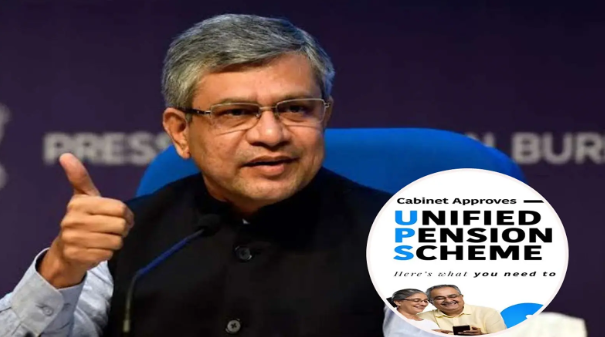Government Unveils Unified Pension Scheme to Enhance Retirement Benefits (GS Paper 2, Government Policies)

Introduction
- In a transformative policy shift, the Union Cabinet has approved the Unified Pension Scheme (UPS), a new initiative designed to bolster retirement benefits for government employees.
- Announced on August 25, 2024, this scheme is expected to impact approximately 2.3 million government workers, providing a robust alternative to the existing National Pension System (NPS).
Context of the Decision
- The approval of the UPS follows a comprehensive evaluation of the current pension framework. In 2023, a committee led by Finance Secretary TV Somanathan was tasked with reviewing the NPS.
- The UPS will complement the NPS, which has been in place since April 1, 2004, offering employees greater choice and potentially enhanced benefits.
Key Features of the Unified Pension Scheme
Guaranteed Pension:
- One of the UPS’s most significant advantages is the assurance of a pension. Employees who complete at least 25 years of service will be eligible for a pension amounting to 50% of their average basic pay from the final 12 months before retirement.
- For those with fewer years of service, the UPS provides a proportional pension, ensuring that even employees with a minimum of 10 years of service can benefit, though at a reduced rate corresponding to their service length.
Family Pension:
- The scheme also introduces an assured family pension.
- In the event of an employee’s death, their dependents will receive 60% of the employee’s pension.
- This feature is designed to provide essential financial support to families during a time of loss.
Minimum Pension Guarantee:
- To ensure a basic standard of living for retirees, the UPS guarantees a minimum pension of Rs. 10,000 per month for those with at least 10 years of service upon retirement.
- This provision aims to protect retirees from financial hardship.
Inflation Protection:
- Recognizing the impact of inflation on fixed incomes, the UPS includes provisions for adjusting pensions based on inflation.
- This adjustment will apply to the assured pension, family pension, and minimum pension, with Dearness Relief calculated according to the All India Consumer Price Index for Industrial Workers (AICPI-IW).
- This feature is designed to maintain the real value of pension benefits over time.
Lump Sum Payment:
- In addition to monthly pension benefits, retirees will receive a lump sum payment calculated as 1/10th of their monthly emoluments (basic pay plus Dearness Allowance) for every completed six months of service.
- This lump sum, calculated as of the retirement date, will not affect the amount of the assured pension.
Eligibility and Implementation Timeline
- The UPS will be effective from April 1, 2025, but its benefits will be applied retroactively to those who retire or have retired between April 1, 2024, and March 31, 2025.
- This retroactive application ensures that retirees within this period will receive arrears reflecting the new benefits.
Transition from NPS to UPS
- Current subscribers to the National Pension System will have the option to switch to the UPS starting from the next financial year.
- This flexibility allows employees to choose the scheme that best aligns with their retirement planning needs, providing a significant opportunity to benefit from the enhanced features of the UPS.
Conclusion
- The introduction of the Unified Pension Scheme marks a pivotal development in the landscape of government employee benefits.
- By guaranteeing pensions, introducing family support provisions, ensuring minimum pension levels, and incorporating inflation protection, the UPS aims to provide greater financial security for retirees.
- The retroactive benefits and option to transition from the NPS further highlight the government’s commitment to improving retirement outcomes for its employees.
- As the UPS comes into effect, it represents a significant step forward in addressing the needs of government workers and ensuring a more stable and secure retirement for millions of individuals who have dedicated their careers to public service.


